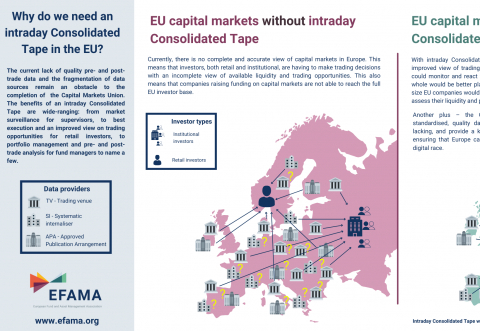EFAMA provided high-level comments to the Commission’s consultation on the potential review of the Directive on Distance Marketing of Consumer Financial Services.
We agree with the Commission’s interpretation that the Directive is seen as a “safety net” for financial services not already subject to product-specific legislation. Fund and asset managers are already subject to various, more stringent and detailed sectoral legislations, such as (but not limited to) UCITS, AIFMD and MiFID as well as the (more recent) Cross-Border Fund Distribution Directives.

























































